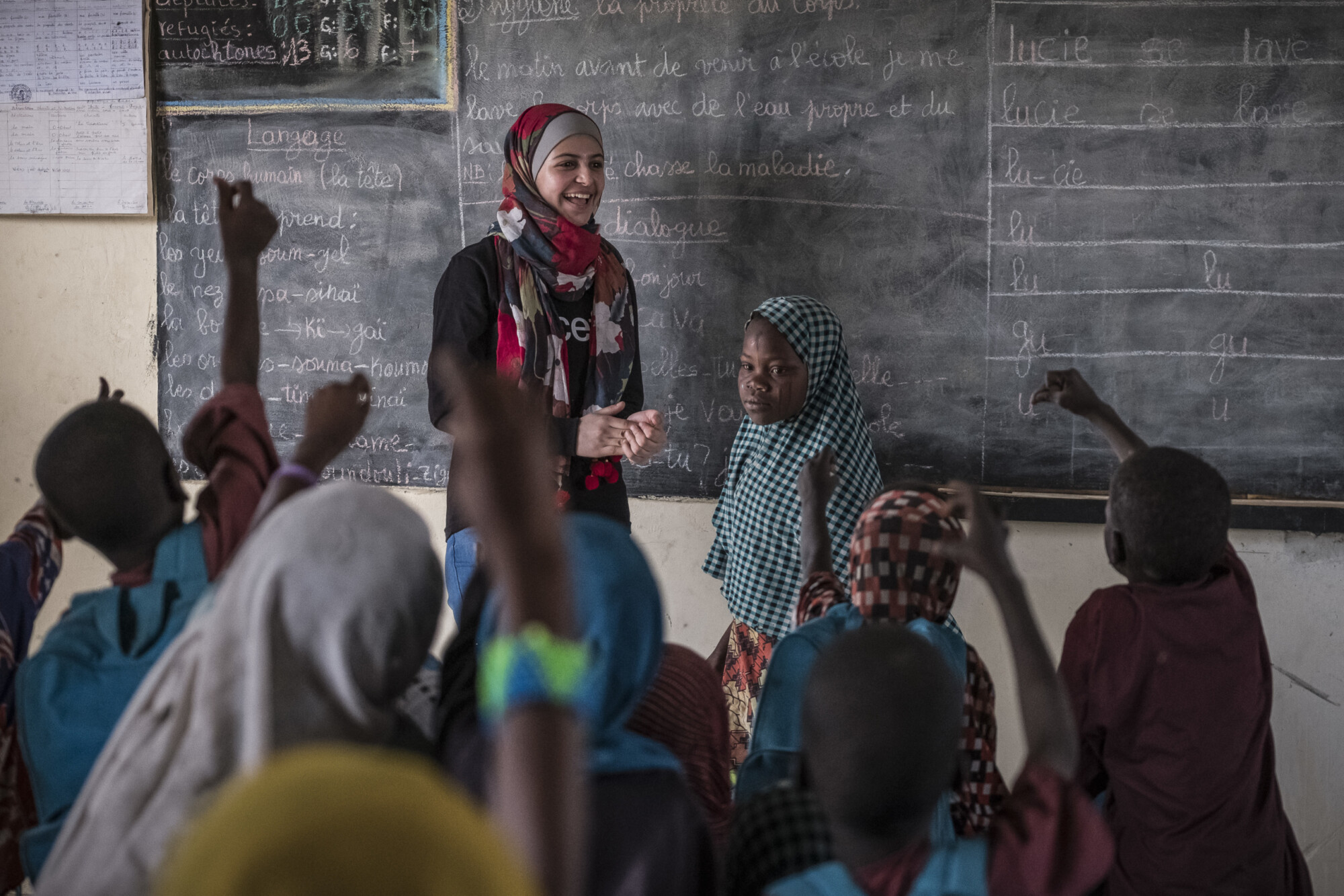Can Business Really Deliver Equality of Opportunity?

Muzoon, a 19-year old Syrian activist, leads a class at a school in a refugee camp in Chad.
© Education Cannot Wait
The noise of a school run is extraordinary. An infectious blast of enthusiasm, camaraderie and play. And hundreds of excited stories, from child to parent, about what they learnt that day.
That 75 million young people have had their education disrupted or ended by conflicts, natural disasters, epidemics and other crises is the scandal of our age. “Some people call us the lost generation” says Muzoon, a 19-year old Syrian activist and one of those denied an education. “But we are not lost. We have not lost our love of learning”.
Tomorrow, 23rd May, marks one year since global leaders created Education Cannot Wait (ECW) – a fund dedicated to providing equal access to safe, free and quality education for all children caught up in crises by 2030. Surely, an uncontroversial aspiration. But in reality – a moonshot that will require new coalitions of ingenuity, persistence and humanity.
This is also an ambition founded on realpolitik, not just idealism. The world is facing a toxic combination of trends. Politically, a lack of trust in 20th century political structures. Economically, rising inequality and a growing fear of the openness that we need to recover from the global crash. And a more existential uncertainty created by the pace of technological change.
For each of these challenges, the best response is equality of opportunity. Without delivering access to education, we risk not finding the next Madeleine Albright, Sergey Brin or Albert Einstein, and not equipping the next generation with the skills they need to survive automation, climate change and insecurity. We risk the generation of which Muzoon speaks – not yet altogether lost, but getting there – becoming not mankind’s greatest hope but our greatest threat.
The Global Business Coalition for Education (GBC-Education) came together because we believe that every child has a right to a quality education. In response to ECW, we have created REACT (Rapid Education Action) to ensure that business on the right side of the argument. Through this, we want to matchmake those ready to help with the people and organisations on the frontline of the education effort in crisis settings. To date, more than 50 companies have joined, and they are starting to get traction.
Some examples point the way to what could be achieved.
Iraqi and Syrian refugees are getting access to coding classes and remote jobs through an innovative partnership between U.S.-based language company NaTakallam and NGO Re:Coded. In drought-hit Somalia, Radioflag is working with UNICEF to use their reach to raise funds, run campaigns and get education to remote areas. Meanwhile, LexisNexis Risk Solutions and RELX Group have provided their tech know-how to develop the REACT platform in a way that can more swiftly connect business to partners on the ground.
These initiatives help us to imagine what could be achieved if business is genuinely at the heart of this effort to deliver hope to millions. No longer in side meetings at government conferences. Nor being asked to write cheques for other people’s work. But in the engine room, designing a 21st century response to that oldest of challenges – giving the next generation what they need to build a community of dignity, reason and hope.
Muzoon tells other refugees, “One day, I want to hear your stories about how many of my fellow refugees became engineers, doctors, lawyers and teachers. And how many returned to their homes, their countries – to build a new life, one better than before. Never stop learning and never stop dreaming. Never lose hope”.
Click on the video below to WATCH Muzoon’s message in full.
To become a REACT company, please contact Sherif@gbc-education.org.
Professor Tom Fletcher CMG is a former British ambassador to Lebanon. He recently published “Naked Diplomacy: Power and Statecraft in the Digital Age.”
